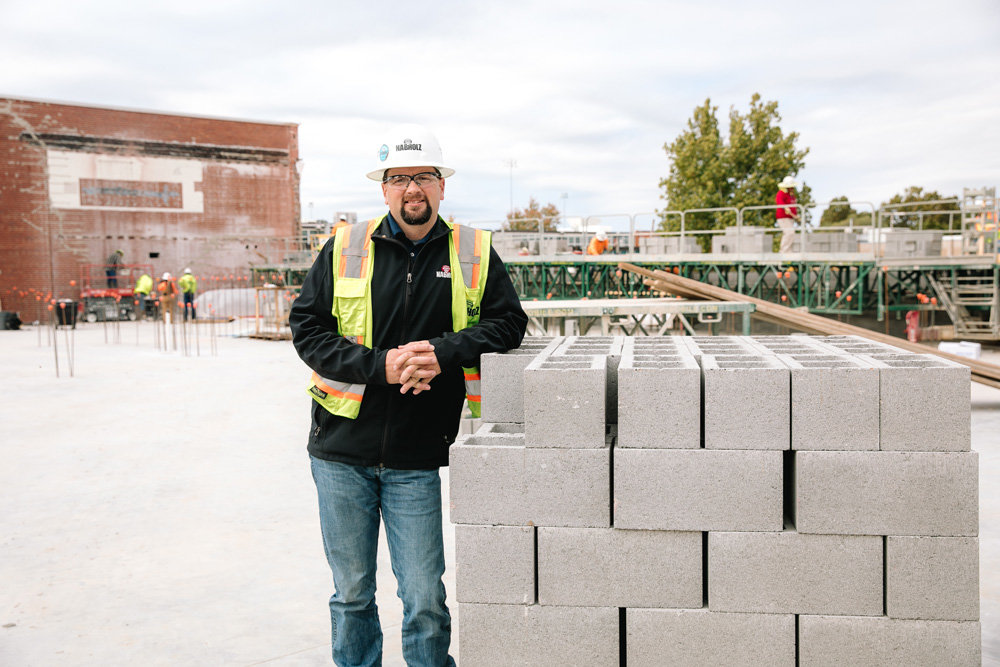YOUR BUSINESS AUTHORITY
Springfield, MO
YOUR BUSINESS AUTHORITY
Springfield, MO

Bureau of Labor Statistics data released last month show the construction industry had recovered nearly 82% of the jobs that it lost during the COVID-19 pandemic. There’s still that gap causing a labor shortage. How is that impacting work?
It impacts our jobs, really in the (subcontractors) that we’re able to get on the site. We probably have 30 to 40 craftsmen that are actual employees of Nabholz, but we rely a lot on our subs. If they can’t find employees, we have a hard time completing jobs. We try to do everything that we can to help if we can. Nabholz actually has its own apprenticeship program. I think we’ve got four or five different carpenters that are going through that program right now.
Is the shortage impacting the cost of the jobs with labor becoming more competitive?
Yes. People go where the money is, so if they know that they can go somewhere and make $5 more an hour versus what they’re making now, I think that’s where they’re going to go. It definitely affects how much the job is costing us in terms of subs as well as employees. It’s definitely affecting jobs that we’re pricing out in the preconstruction phase, as well as some that, you know, that we’ve had bid out recently.
You became president of the Springfield Contractors Association’s Generation Next this year. What’s the mission of the young professionals group?
The reason that Generation Next was formed, you go to an SCA meeting and you’re going to see a lot of the owners, a lot of the older people that have been involved in contracting forever. You go there as a young professional out of college and you’re going to be a little bit intimidated. It’s about getting people of the same age, same mindset, and getting them prepared for being a part of the association. I can’t say that we’ve gotten (an employee) out of it yet, but we’ve definitely had conversations with people. It’s something that we use for hiring.
What industries are strong right now for construction?
Definitely the schools. You’re getting a lot of public work. Our civil group out of Rogers [Arkansas], I know they’re doing a lot of road work. Construction as a whole is just booming right now. Our pre(construction) departments are all swamped right now helping owners price work or bidding projects.
The industry is known for razor-thin margins, and reports say costs are at an all-time high. How are you combating those challenges and creating efficiencies?
The greatest asset that we bring to the table is going to be in the preconstruction phase. With construction management, it’s not just, hey, here’s a full set of documents, we’ll price the work. We get involved when the documents are at their infancy stage. We’re able to work with the architects and able to tell them we’re seeing issues with this product. What can we switch this to? Instead of a preengineered building, what else can we make this building with that we can get faster? Engineered metal buildings are a year out now. We’re always investing in different programs. Technology is always big, and you’ve got to stay ahead of that field. Otherwise, someone else will beat you to it. You go down into some of our other offices and they’re using a lot of the virtual design, 3D modeling. We can see clash detection, which again is a huge benefit in the preconstruction phase. If we can get those 3D models and pull together from the architect, the engineers, and be able to put that together and see an issue in design versus when we actually got it built, the savings goes right back to the customer.
What’s a trend you’ve seen in the industry since the COVID-19 pandemic?
One big thing that we’re hammering on is getting material to the site earlier. This is all of our roofing material for a project that they only have a slab in the ground. Our focus now has turned into no matter what it is, get it to the job site now. There is a massive issue on getting materials, not only cost increase, but actually getting them to a site. You hear of all the ports that are shut down or have huge backlogs on containers and ships. The cost of storage is way cheaper than the delay that we would have to the owner.
Tim Potthoff can be reached at tim.potthoff@nabholz.com.
Utah-based gourmet cookie chain Crumbl Cookies opened its first Springfield shop; interior design business Branson Upstaging LLC relocated; and Lauren Ashley Dance Center LLC added a second location.
Updated: Systematic Savings Bank to be acquired in $14M deal
Warby Parker store planned in Springfield
Former CoxHealth colleagues starting communications firm
Former Wentzville superintendent to get $1M in contract buyout
STL construction firm buys KC company
NPR editor resigns after writing piece critical of organization
Survey finds increase in average salary Americans willing to take